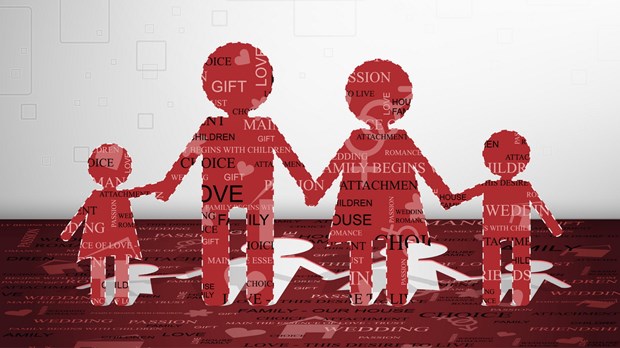Preparing Your Children for an Evil World

After a long day of playing outside my aunt and uncle's home, I ran into the house, where my aunt was cooking dinner. The news was on in the other room, and I sat and watched it for a few minutes.
Confused by something the reporter said, I walked into the kitchen and asked Aunt Misty, "What's rape?"
I was only 7 at the time, but I clearly remember Aunt Misty gasping and racing around to find the remote.
"What's rape?" I repeated once Aunt Misty turned off the television.
My older cousin John tapped my shoulder. "Rape is when people go like this to you," he told me and grinded his teeth.
I always thought that was "gnashing," I thought to myself, but I figured my cousin knew best.
Now I'm a mother myself, and I wonder how to explain certain current events to my kids. The memory from December, 2012, is still fresh in my mind; my kids heard me crying as I read reports about the Sandy Hook Elementary School massacre. Of course, they wanted to know what happened.
How much should I tell my first grader? I wondered. How much could his little soul handle?
As mothers, we long to protect our children, to shield them from the stark realities of the evil world we live in. My heart nearly broke the day my son asked me, "Mom, are bad guys real?" Up until our conversation, Nate assumed bad guys were the stuff of fiction and fantasy. I loved Nate's sweet innocence, but I mourned for all the children in our world who learn firsthand what I had to actually teach my son:
Bad guys are very real.
Many parents shield their children completely from news events like kidnappings, child abuse, and school shootings. Although it's important to protect our children's innocence and give them only information their developing minds can handle, we're reminded nearly every day that this planet can be a horrible place. The tragedy that today just makes for a terrible news headline might repeat itself in our own communities in the not-too-distant future. How can we prepare our young children for the ugly dangers of life without overloading them with scary stories and images that they simply can't handle?
1. Answer questions honestly. I don't blame my cousin for his explanation of rape, but eventually I learned that it was wrong. I didn't need to know the mechanics of forced sexual intercourse when I was 7 years old, but a simple answer like "Rape is a bad thing that some people do to other people" probably would have sufficed. Be truthful with your kids, but edit out any details they don't need to know.
2. Let them hear it from you. The older your kids get, the more likely they'll hear about current events—especially the sensational ones—at church, school, or a friend's house. If a story might be frightening to your child, do what you can to be the one who tells them. Be careful about media as well. No matter how gripping the story, my husband and I don't watch the news while our children are awake. If our kids learn about tragic events, it will be from us and not from a news reporter. Remember, reporters are paid to sensationalize horrible stories. They aren't about to filter out details that are inappropriate for young audiences.
3. Don't be silent. Several months ago, our community was devastated with news of a local kidnapping. Pictures and notices hung up everywhere: on storefronts, on car windows, on street lights. Nate asked me about the fliers. I told him in simple terms what happened, and we decided that each time we saw a flier we would pray for the abducted girl. Since Nate could read the word kidnapped and knew what it meant, I figured we needed to discuss it fully. That way Nate was able to ask me questions until he felt comfortable with my answers. If I had stayed silent, who knows what fears or misconceptions Nate might have held onto, without me even knowing it?
4. Talk through scenarios before they happen. Nate knows that if the house catches fire, his job is to help his younger brothers get outside. I don't tell him this so he'll have nightmares every night about our house burning down. I tell him this so he can act logically and promptly if he ever finds himself in that scary situation. If I neglect to talk to Nate about fire safety because I don't feel his innocent mind can handle it, that same innocent mind might freeze during crisis and completely shut down in terror. In the same way, we need to provide our children with basic safety training. Do your kids know what to do when they're in trouble? Do they know where to go if someone makes them uncomfortable? Do they know whom to call if they're in a threatening environment?
5. Talk to your children about bad guys. Our children need to know that villains do exist. You can teach your kids without scaring them. When Nate asked me about bad guys, I told him, "There are some adults who like to do bad things to children. If a bad guy tries to do something bad to you, it's okay to fight back. But even if you can't get away, it's not your fault." I pray to God that my son will be well into his teen years before he learns any more about the bad things people do to children, but at least Nate knows that not every adult is trustworthy.
6. Don't make promises you can't keep. "Mom," Nate asked me one day, "what would you do if I got kidnapped?" It was part of a game Nate likes to play, where he asks me what I would do if something sad or goofy or unexpected happened to him. But instead of just joking along this time, I told my son, "If anyone kidnapped you, Daddy and I would do everything we could to find you. Even if it took years and years and years, Daddy and I would keep praying for you and keep looking for you. And the police would too." I didn't promise Nate he would never get kidnapped. I didn't assure Nate the police would rescue him right away. But I said what I meant, and that's a promise I would definitely keep.
The world is a scary place. Unfortunately, not even the youngest children are immune from tragedy and horror. So let's teach our kids to accept dangers as a real part of life and equip them with practical ways to stay safe. Most of all, let's remind our kids every day that we love and cherish them.
Because sometimes a parent's love is all a child needs to feel safe and secure in this terrifying world.
Subscribe to our free bi-weekly e-newsletter at this link for tips, advice, and encouragement for the joys, trials, and tribulations of parenting.
Alana Terry is a pastor's wife and homeschooling mother of three. In addition to leading homeschool clubs in her community, Alana has written three books, including The Beloved Daughter, which was a winner in the 2012 Women of Faith writing contest. AlanaTerry.com.
Read more articles that highlight writing by Christian women at ChristianityToday.com/Women
 Read These Next
Read These Next
 Protecting Your Kids from Internet PredatorsCyberspace is a dangerous place for teens and preteens; here are some tips to keep them safe online
Protecting Your Kids from Internet PredatorsCyberspace is a dangerous place for teens and preteens; here are some tips to keep them safe online
 The Art of Loving Unlovable People12 steps to help you deal with difficult people
The Art of Loving Unlovable People12 steps to help you deal with difficult people








 Homepage
Homepage